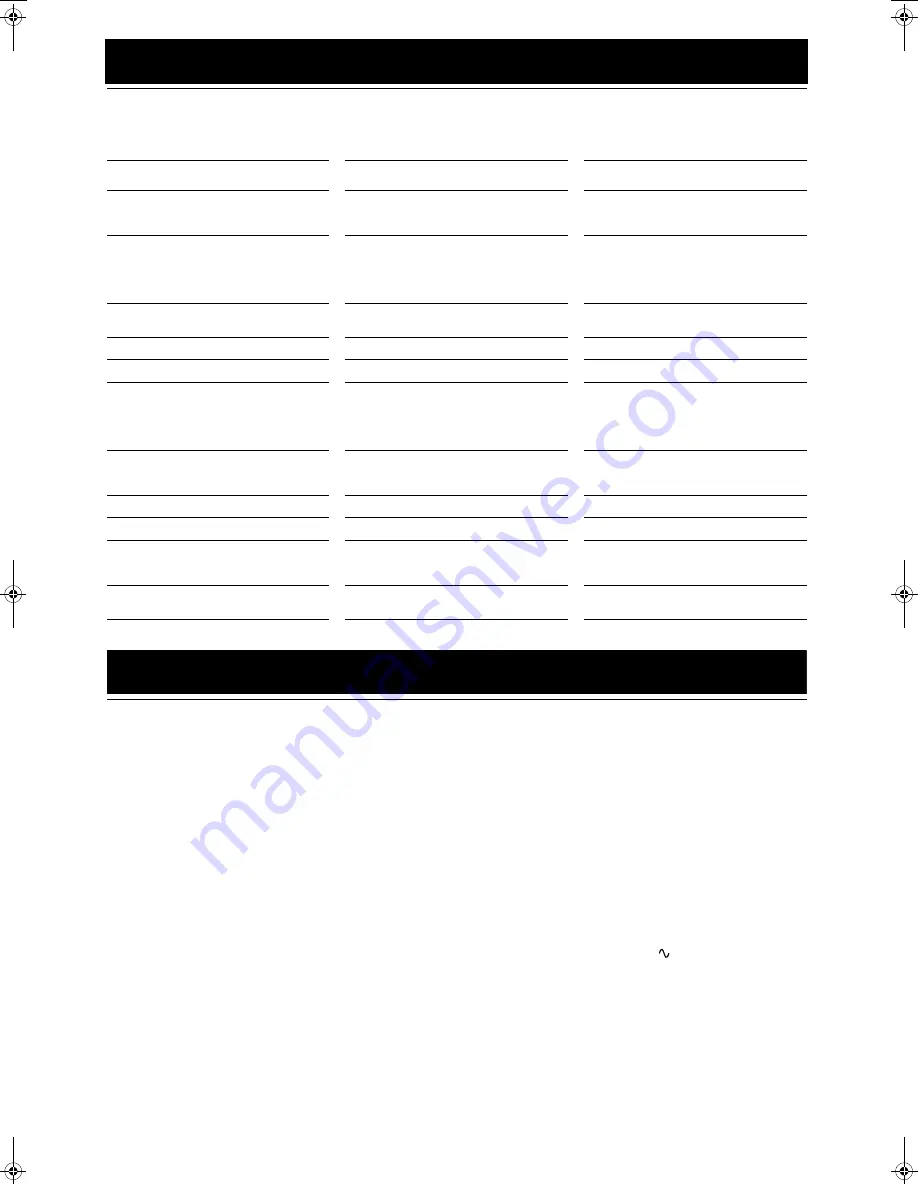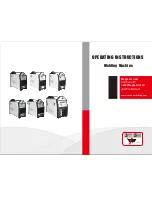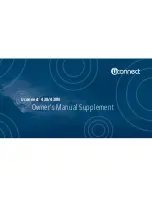
26
Troubleshooting
• If you are having a problem with your System, check this list for a possible solution before calling for service.
• If you cannot solve the problem from the hints given here, or the System has been physically damaged, call a qualified person, such as
your dealer, for service.
Symptom
Possible Cause
Action
No sound is heard.
• Connections are incorrect, or loose.
• Headphones are connected.
• Check all connections and make corrections.
(See pages 4 to 6.)
• Disconnect the headphones.
Poor radio reception
• The antenna is disconnected.
• The AM Loop Antenna is too close to the Sys-
tem.
• The FM Wire Antenna is not properly
extended and positioned.
• Reconnect the antenna securely.
• Change the position and direction of the AM
Loop Antenna.
• Extend FM Wire Antenna to the best reception
position.
The disc tray does not open.
• The AC power cord is not plugged in.
• Tray is locked.
• Plug the AC power cord.
• Unlock the tray. (See page 15.)
The CD skips.
The CD is dirty or scratched.
Clean or replace the CD. (See page 25.)
The CD does not play.
The CD is upside down.
Put the CD in with the label side up.
The MP3 disc does not play.
• No MP3 files are recorded on the disc.
• MP3 files do not have the file extension —
.MP3, .Mp3, .mP3, or .mp3 in thier file names.
• MP3 files are not recorded in the format com-
pliant with ISO 9660 Level 1 or Level 2.
Replace the disc.
The readout time of the MP3 disc is too long.
The readout time varies with the complexity of
the recording configuration.
Do not use too many hierarchies and folders when
recording. Also, do not record any other types of au-
dio tracks together with MP3 files. (See page 11.)
The cassette holder cannot be opened.
During tape playing, the power cord was unplugged.
Plug in the power cord, and turn on the System.
Unable to record.
Cassette record protect tabs are removed.
Cover holes on back edge of cassette with tape.
Unable to operate the Remote Control.
• The path between the Remote Control and the
sensor on the Unit is blocked.
• The batteries have lost their charge.
• Remove the obstruction.
• Replace the batteries.
Operations are disabled.
The built-in microprocessor has malfunctioned due
to external electrical interference.
Unplug the System then plug it back in.
Amplifier
Speaker Specifications (each unit)
Output Power 140 W per channel, min. RMS, driven
SP-MXKC4
into 6
Ω
at 1kHz, with no more than
Type 3-way bass-reflex type
10% total harmonic distortion
Speaker Unit Woofer: 16 cm cone × 1
(IEC 268-3)
Mid:
5cm cone × 1
Input Sensitivity/Impedance (1 kHz)
Tweeter; 2cm dome × 1
AUX IN 400 mV/50 k
Ω
Power Handling Capacity 140 W
Speaker terminals 6
Ω
- 16
Ω
Impedance 6
Ω
Phones 32
Ω
- 1 k
Ω
Frequency Range 45 Hz - 22 000 Hz
15 mW/ch output into 32
Ω
Sound pressure level 87 dB/W·m
Cassette Deck Section
Dimensions 266 mm × 333 mm × 241 mm (W/H/D)
Frequency Response
Mass Approx. 3.9 kg
Type I (NORMAL) 63 Hz - 12 500 Hz
Accessories
Wow And Flutter 0.15% (WRMS)
AM Loop Antenna (1)
CD Player
Remote Control (1)
CD Capacity 3 CDs
Batteries R6P (SUM-3)/AA (15F) (2)
Dynamic Range 85 dB
FM Wire Antenna (1)
Signal-To-Noise Ratio 85 dB
Power Specifications
Wow And Flutter Unmeasurable
Power Requirements AC 240V
50Hz
Tuner
Power Consumption 140 W (power on mode)
FM Tuner
22 W (in Standby mode)
Tuning Range 87.50 MHz - 108.00 MHz
AM Tuner
Design and specifications are subject to change without notice.
Tuning Range 522 kHz - 1710 kHz
Unit
Dimensions 270 mm × 306 mm × 456 mm (W/H/D)
Mass Approx. 8.6 kg
Specification
MX-KB4[A].book Page 26 Thursday, January 20, 2005 7:09 PM
















































